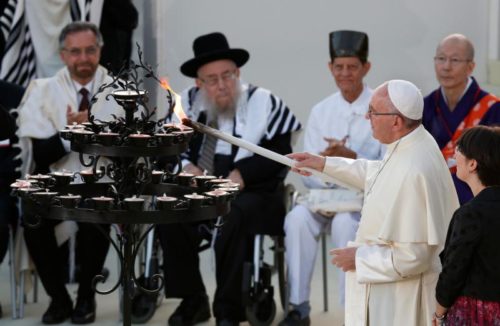
It has been fifty years now and the current Jesuit Pope, Francis, has declared that this is the year of the Jubilee. In his recent encyclical, LAUDATO SI’ he invokes the Biblical passages of the Old Testament referring to Sabbath, the Sabbatical Year and the Jubilee. He writes, “We see this, for example, in the law of the Sabbath. On the seventh day, God rested from all his work. He commanded Israel to set aside each seventh day as a day of rest, a Sabbath, (cf. Gen 2:2-3; Ex 16:23; 20:10). Similarly, every seven years, a sabbatical year was set aside for Israel, a complete rest for the land (cf. Lev 25:1-4), when sowing was forbidden and one reaped only what was necessary to live on and to feed one’s household (cf. Lev 25:4-6). Finally, after seven weeks of years, which is to say forty-nine years, the Jubilee was celebrated as a year of general forgiveness and “liberty throughout the land for all its inhabitants” (cf. Lev 25:10). This law came about as an attempt to ensure balance and fairness in their relationships with others and with the land on which they lived and worked.” (LAUDATO SI’, Section 71).
His invocation and subsequent re-contextualization of these Biblical concepts are presented as the foundation upon which his prescription for solving the world’s problems is built. Jehovah God intended that His Sabbath, the Sabbatical Year, and the Biblical Jubilee would remind His people that He is their Creator, that they are stewards and that they ought to conduct themselves and manage the earth in a manner that would glorify Him and benefit all humanity. These are prescribed as times of justice, mercy, equity, rest for humanity and the earth, and reflection upon Him who gave it all to us. Francis, in his encyclical, offers his versions of these concepts as solutions to take care of the poor, stop ozone depletion, and remedy the world’s economic woes. In doing so, he is in fact attempting to take the place of God; for it is the God of Creation who gave us the Sabbath, the Sabbatical Year, and the Jubilee.
The Sabbatical year (every seventh year) and the Jubilee (every fiftieth year) are extrapolations of the Seventh-day Sabbath given to humanity at creation (Genesis 2:1-3). It is not a Jewish Sabbath. It is the Creator’s Sabbath, the day of rest, bequeathed to all humanity. In giving humanity this sanctuary in time, Jehovah God intended that all would remember Him as Creator. The Sabbatical Year and the Jubilee were instituted to further impress our minds of God’s creative and sustaining power. The Jewish nation was the instrument in God’s hands used to teach this most vital lesson to all mankind. His servant Isaiah declared, “And he said, It is a light thing that thou shouldest be my servant to raise up the tribes of Jacob, and to restore the preserved of Israel: I will also give thee for a light to the Gentiles, that thou mayest be my salvation unto the end of the earth (Isaiah 49:6). He instructed His servant Moses, “Remember the Sabbath day, to keep it holy. Six days shalt thou labour, and do all thy work: But the seventh day is the Sabbath of the Lord thy God: in it thou shalt not do any work, thou, nor thy son, nor thy daughter, thy manservant, nor thy maidservant, nor thy cattle, nor thy stranger that is within thy gates: For in six days the Lord made heaven and earth, the sea, and all that in them is, and rested the seventh day: wherefore the Lord blessed the Sabbath day, and hallowed it” (Exodus 20:8-11).
For the Sabbatical year, based upon the seventh-day Sabbath, God further admonished Moses, “Six years thou shalt sow thy field, and six years thou shalt prune thy vineyard, and gather in the fruit thereof; But in the seventh year shall be a Sabbath of rest unto the land, a Sabbath for the Lord: thou shalt neither sow thy field, nor prune thy vineyard” (Leviticus 25:3-4). Regarding the Jubilee, the fiftieth year, Creator God again directed Moses, “And thou shalt number seven Sabbaths of years unto thee, seven times seven years; and the space of the seven Sabbaths of years shall be unto thee forty and nine years. Then shalt thou cause the trumpet of the Jubilee to sound on the tenth day of the seventh month, in the Day of Atonement shall ye make the trumpet sound throughout all your land. And ye shall hallow the fiftieth year, and proclaim liberty throughout all the land unto all the inhabitants thereof: it shall be a Jubilee unto you; and ye shall return every man unto his possession, and ye shall return every man unto his family “(Leviticus 25:8-10).
Francis’ subtle, yet blatant usurpation of the God of Creation is evident in his encyclical. He states, “On Sunday, our participation in the Eucharist has special importance. Sunday, like the Jewish Sabbath, is meant to be a day which heals our relationships with God, with ourselves, with others and with the world. Sunday is the day of the Resurrection, the “first day” of the new creation, whose first fruits are the Lord’s risen humanity, the pledge of the final transfiguration of all created reality. It also proclaims “man’s eternal rest in God” (LAUDATO SI’, Section 237). How can a mere human being transfer the meaning, sacredness, and sanctity of God’s Sabbath, the 7th day of the week, to Sunday, the first, and by extension relegate the blessings of the Creator’s Jubilee to one he and his church have invented? But this is indeed what Francis is doing in LAUDATO SI’.
Kevin P. Emmert, in his June 19, 2015, article, Why the Pope Is Going Green, in Christianity Today Online, puts Francis’ encyclical in perspective when he observes, “The encyclical, however, is far more than a doomsday letter or a how-to of environmental care. Underlying the warnings and prescriptions, he offers a theology of creation that emphasizes how, by God’s design, human beings and the created world are deeply connected. If we understand this, Francis says, it can change the way we relate to God, to one another, and creation”. But we must relate to God, each other, and to creation based on God’s prescription, His Ten Commandments (Exodus 20:2-17), and not Francis’ LAUDATO SI’ which prescribes Sunday sacredness and the Eucharist in its place.
Francis is not God. Sunday is not God’s Sabbath and the 50th anniversary of Vatican Council II is not His Jubilee. The Eucharist and Sunday sacredness are inventions of his church that are patently opposed to the word of God. The Bible plainly teaches, “So Christ was once offered to bear the sins of many; and unto them that look for him shall he appear the second time without sin unto salvation” (Hebrews 9:28, 10:14). Contrariwise, the Eucharist is thus defined, “By the consecration the transubstantiation of the bread and wine into the Body and Blood of Christ is brought about. Under the consecrated species of bread and wine Christ himself, living and glorious, is present in a true, real, and substantial manner: his Body and his Blood, with his soul and his divinity (Catechism of the Catholic Church, 1413).
Observing the 7th day Sabbath, the Sabbatical year and the Jubilee are acts of worship due only to Creator God. We honor Him by obeying His commandments. Sunday sacredness, the Eucharist, and imbibing a false jubilee are acts of obedience to and worship of another power. Both the prophets Daniel in the Old Testament (Daniel 2, 7, 8 & 11) and John (Revelation 13, 17&18) in the New, clearly identify this power. The Apostle Paul speaks of it thus, “Let no man deceive you by any means: for that day shall not come, except there come a falling away first, and that man of sin be revealed, the son of perdition; Who opposeth and exalteth himself above all that is called God, or that is worshipped; so that he as God sitteth in the temple of God, shewing himself that he is God” (2 Thessalonians 2:3-4). The Protestant Reformers were all in agreement. It is none other than the Roman Papacy. Both history and Scripture testify of it as one taking the prerogatives of God, seeking to change God’s law, persecuting God’s true followers, and claiming to take the place of God on earth.
The promises of Francis, its current head, will not bring peace, justice, equity and rest; but rather usher in unmitigated chaos, bloody repression, and ultimately total destruction. The prophet Daniel reveals, “And at that time shall Michael stand up, the great prince which standeth for the children of thy people: and there shall be a time of trouble, such as never was since there was a nation even to that same time: and at that time thy people shall be delivered, every one that shall be found written in the book” (Daniel 12:1). Then begins God’s Jubilee (1 Thessalonians 4:16-18; Revelation 20:4).
Quite unlike Francis’ prescription for harmony, equity and security, Creator God warns of a world that is swiftly travelling towards its appointment with a dismal destiny. The ancient seer, Jeremiah, describes it thus, “I beheld the earth, and, lo, it was without form, and void; and the heavens, and they had no light. I beheld the mountains, and, lo, they trembled, and all the hills moved lightly. I beheld, and, lo, there was no man, and all the birds of the heavens were fled. I beheld, and, lo, the fruitful place was a wilderness, and all the cities thereof were broken down at the presence of the Lord, and by his fierce anger. For thus hath the Lord said, the whole land shall be desolate; yet will I not make a full end. For this shall the earth mourn, and the heavens above be black; because I have spoken it, I have purposed it, and will not repent, neither will I turn back from it” (Jeremiah 4:23-28). And why would this be? His fellow seer, Isaiah, who is in total agreement (Isaiah 24:1-4) answers, “The earth also is defiled under the inhabitants thereof; because they have transgressed the laws, changed the ordinance, broken the everlasting covenant” (Isaiah 24:5).
Will you rest your hopes on the word of Creator God or upon the sinking sand of Francis’ empty promises? The choice is yours to make.

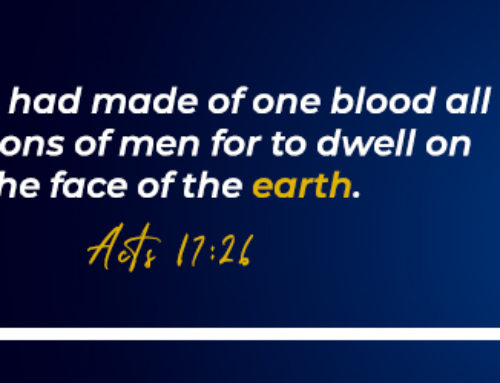

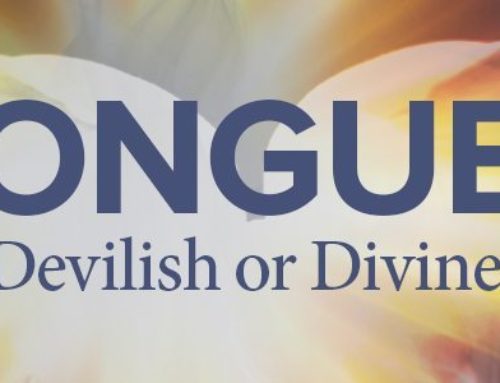
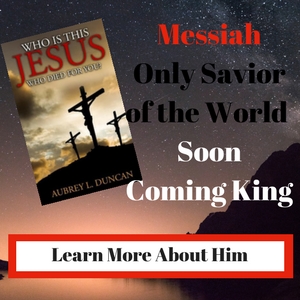
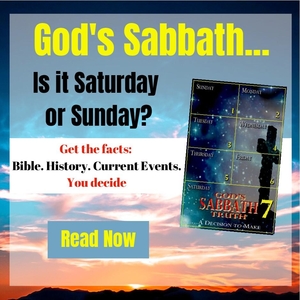
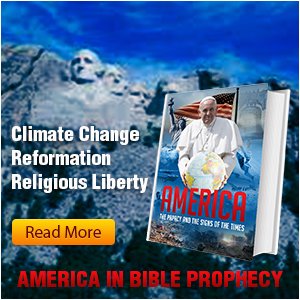
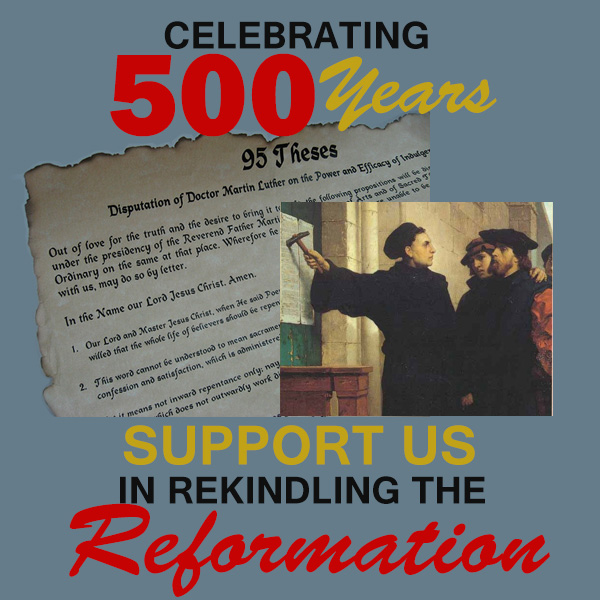
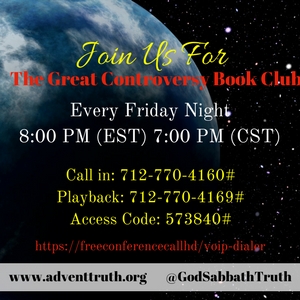
Leave A Comment